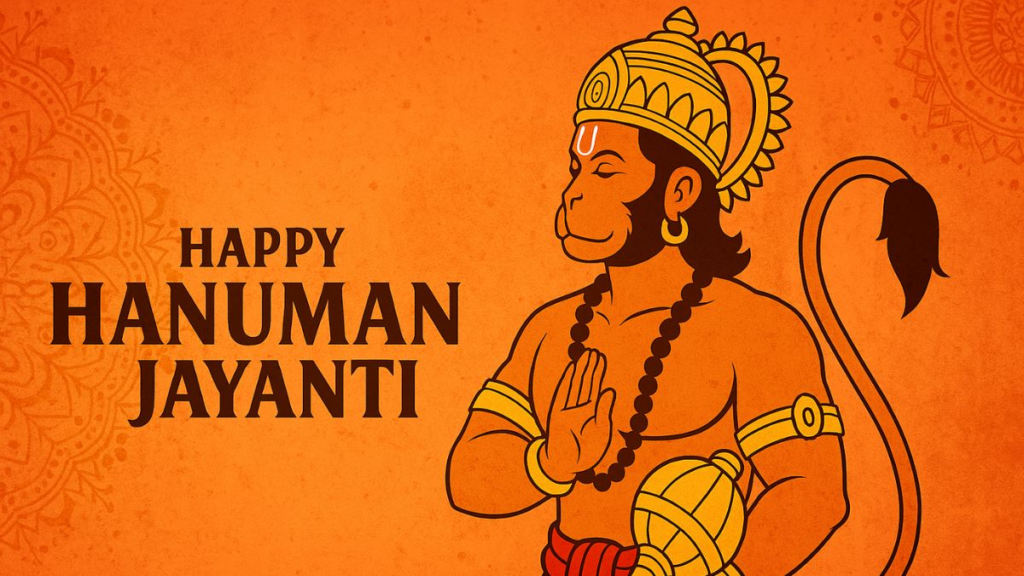
Table of Contents
- Introduction: The Eternal Relevance of Lord Hanuman
- Strength: Power with Purpose
- Devotion: The Purest Form of Love
- Selflessness: Serving Without Ego
- How Hanuman’s Life Teaches Us to Face Challenges
- Bringing Hanuman’s Teachings Into Our Daily Life
- Conclusion: Becoming a Hanuman in Spirit
1. Introduction: The Eternal Relevance of Lord Hanuman
Lord Hanuman is not just a deity worshipped in temples—he is a symbol, a mindset, a way of life. His presence in the epic Ramayana is not simply to fight battles or perform miracles, but to teach us how to live with courage, love, and humility.
In today’s fast-paced and self-centered world, Hanuman’s spiritual qualities—strength, devotion, and selflessness—shine like guiding stars, reminding us of our higher purpose and potential.
2. Strength: Power with Purpose
When we think of Lord Hanuman, the first image that often comes to mind is of immense physical and inner strength. But his power was never about dominance or ego. His strength came from discipline, control, and dedication to truth.
Hanuman teaches us that true strength lies not in the body, but in the ability to stand up for righteousness, to carry the burden of others, and to never misuse one’s power. It’s not about being the loudest in the room, but the calmest in the storm.
“A strong person is not one who defeats others, but one who conquers himself.”
3. Devotion: The Purest Form of Love
Hanuman’s devotion to Lord Rama is the heart of his story. It was not blind faith—it was a deep, conscious surrender rooted in love, loyalty, and clarity. He didn’t serve Rama out of obligation but out of heartfelt reverence.
In every action—big or small—Hanuman placed Rama before himself. This teaches us that devotion is not about rituals, but about living in constant connection with something greater than ourselves, be it God, truth, or a noble cause.
“To love without expecting, to serve without seeking—that is true devotion.”
4. Selflessness: Serving Without Ego
One of the most powerful qualities of Hanuman is his utter selflessness. Despite his greatness, he never sought recognition or reward. He performed miracles and heroic deeds, yet remained humble.
Hanuman reminds us that the highest service is done in silence, with no expectation of applause. His actions inspire us to work for the good of others, not for praise, but for peace and purpose.
“The world changes when we act not for ourselves, but for others.”
5. How Hanuman’s Life Teaches Us to Face Challenges
From leaping across the ocean to battling demons, Hanuman faced immense trials. But he never hesitated or feared, because he believed in his mission and trusted the divine.
His story teaches us:
- Believe in your hidden potential
- Face fear with faith
- Let humility lead your victories
- Stay grounded, even in success
Hanuman is a reminder that obstacles are not roadblocks, but opportunities to awaken our true power.
6. Bringing Hanuman’s Teachings Into Our Daily Life
So how can we walk the path of Hanuman in modern times?
- Practice discipline: Like Hanuman trained his body and mind, we too must master ourselves.
- Serve others: Even small acts of kindness carry great value.
- Stay loyal: To your values, your purpose, your people.
- Be fearless: Trust that inner strength will rise when it is needed most.
- Stay humble: True greatness is quiet and kind.
Living with Hanuman-like intention can turn ordinary moments into extraordinary offerings.
7. Conclusion: Becoming a Hanuman in Spirit
Lord Hanuman may be a divine figure in ancient scriptures, but his wisdom is timeless. In every moment we choose courage over comfort, service over selfishness, and devotion over distraction—we live his spirit.
Hanuman doesn’t just live in temples or tales.
He lives in every soul that walks with strength, bows in humility, and loves without condition.

